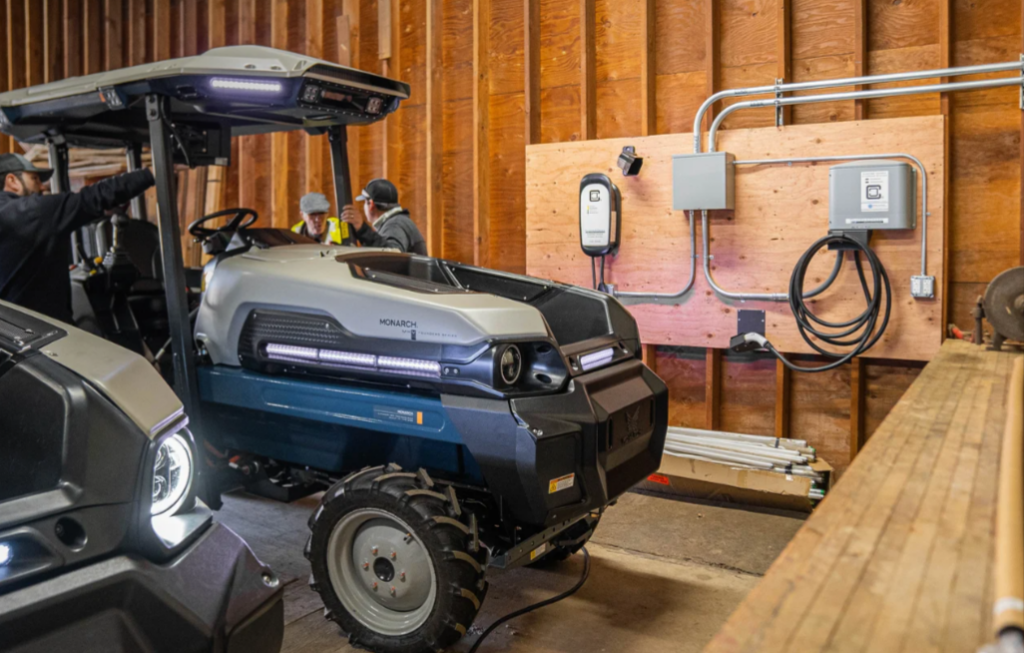
Everyone has heard of Tesla, the poster child for electric cars, but did you know that farm vehicles are also getting an electric makeover?
Not by Tesla, unfortunately, but most major farm manufacturers are now developing or have developed electric versions of their farm machinery and vehicles.
From crop dusting drones to autonomous tractors, and even fruit-picking robots. Battery technology and artificial intelligence have paved the way to a more sustainable and smarter way of farming.
Colorado is a massive farming state. With nearly 40,000 farms, it’s a crop-producing powerhouse.
So, how can electric farm vehicles benefit our Coloradan farmers? Let’s take a deep dive into the subject.
In a Nutshell
- Electric farm vehicles are powered by batteries that are capable of lasting up to 14 hours.
- More and more farm vehicle manufacturers are now offering electric versions.
- Electric farm vehicles include drones, crop-picking robots, tractors, and smaller machines like mowers, forklifts, etc.
- Electric vehicles address labor shortage issues and operational cost rises while increasing sustainability.
- In Colorado, the average price of a gallon of gasoline is $4.37, and the electric gallon equivalent is $1.39. That’s a saving of $2.98 per gallon!
- If you use a tank of fuel per day, you can potentially save $5,438 – $163,155 per year by switching to electric-powered vehicles.
- Numerous electric vehicle tax credits up to $18,000 are available to Colorado residents, and a federal-level tax credit of up to $7,500 is also available.
- Combining electric farm vehicles with solar energy can reduce energy costs by up to 96%.
What is an Electric Farm Vehicle?

An electric farm vehicle is exactly as described. Rather than relying on fossil fuels such as diesel or gas to power it, it’s charged up and powered by electricity.
Electric farm vehicles can perform the same tasks as traditional vehicles, whether that’s sowing the seeds, plowing the fields, or harvesting or treating crops.
When we think of electric farm vehicles, our minds tend to conjure up images of tractors and mowers. However, electric motors are also utilized in the sky in the form of drones and in greenhouses where robots are utilized to perform manual or laborious tasks such as picking fruit. Even your four-wheel drive, pickup truck, and utility vehicle can now be electrified.
Pretty much any type of task, machinery, or vehicle that you see on a farm can be produced as an electrically powered version. The battery technology that powers electric vehicles is now highly efficient, which has paved the way for even the biggest farm vehicles to be made available in electric form!
How Do Electric Farm Vehicles Work?

Electric farm vehicles are powered by batteries. Energy is stored in and released from the battery and flows to the electrical motor. This electrical energy converts to mechanical energy and powers the vehicle.
Modern batteries used in electric farm vehicles can store enough energy to power the vehicles for an entire day. Some are capable of running for up to 14 hours.
To charge the vehicles, it’s necessary to connect them to a charging outlet or station that has been adapted to safely deliver electricity to the vehicle.
Fully charging from empty takes several hours (usually around six) so it is standard practice to charge them overnight when they are not in use.
Thanks to the composition and inner workings of an electric vehicle, there’s less maintenance and repairs required. This is because, compared with a combustion engine, fewer moving parts, fluids, and other components need to be regularly inspected.
If properly charged and discharged, electric vehicle batteries have a lifespan of around 15 – 20 years or 100,000 – 200,000 miles. Over time, like all batteries, they will gradually drop in efficiency and will need to be replaced.
What Are the Different Types of Electric Farm Vehicles?
Smaller electric vehicles have been around for quite some time. In fact, if you’re a farmer, you probably already own a few. These include forklifts, mowers, pickups, and 4-wheel drive off-roaders.
Smaller ground-based vehicles were first to be electrified as the battery technology available was able to match the power required to run them.
As battery technology has improved, the size of the vehicles has increased, and these batteries are now capable of powering much larger machines.
Let’s take a look at a few notable examples.
Electric Drones
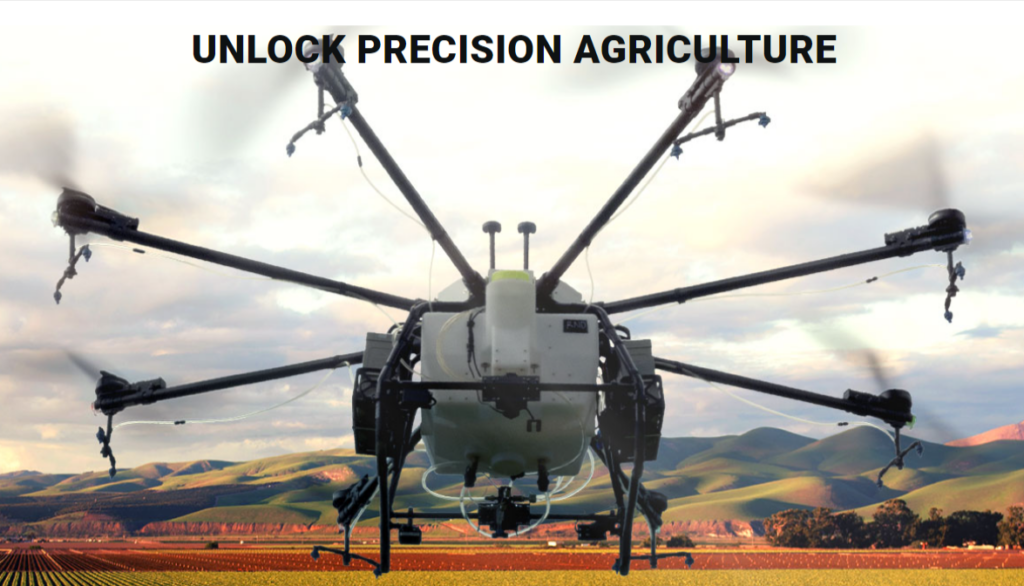
Electricity is revolutionizing the way machinery is used for farming, and this has been most evident in ariel-based farming activities such as crop dusting and field analysis.
Traditionally, a man-powered airplane or helicopter was needed to carry out these activities. This was very expensive and dangerous due to the extremely low altitude the aircraft had to fly at. It was reasonably inefficient because the aircraft could not be precise about where they sprayed.
Nowadays, almost 100% of farms based in the USA use drones for crop spraying and analysis.
Drones offer complete precision over where spraying occurs, allowing farmers to easily troubleshoot or treat specific areas and use exactly the right amount of chemical spray.
Additionally, electric drones are cheap to run and don’t risk anyone’s life in the process.
All businesses that used to offer crop spraying via aircraft have now switched to using electric drones instead.
Large spraying drones can now carry up to 400 pounds of chemicals and provide the same amount of daily coverage as a spraying tractor for $200,000 instead of $700,000.
Fruit and Vegetable Pickers

A new but exciting technology, electric-powered fruit pickers provide a more efficient and less laborious way of harvesting crops round the clock.
The robots are able to identify and pick certain types of fruit (depending on what the machine has been programmed to harvest) without damaging them.
In the UK, Fieldworks Robotics has even developed a robot that can safely harvest the very delicate raspberry. It features four arms that simultaneously pick the fruit as it moves between the rows of raspberry canes.
Eventually, the robot will be capable of picking 25,000 raspberries a day. In contrast, a human working an eight-hour shift can generally only manage around 15,000 berries.
This example from Ripe Robotics even uses AI to analyze each piece of fruit for quality, size, and color to help growers better understand their crops and harvests. Eventually, the robots will also be capable of pruning, thinning, and spraying the fruit trees.
Electric Tractors
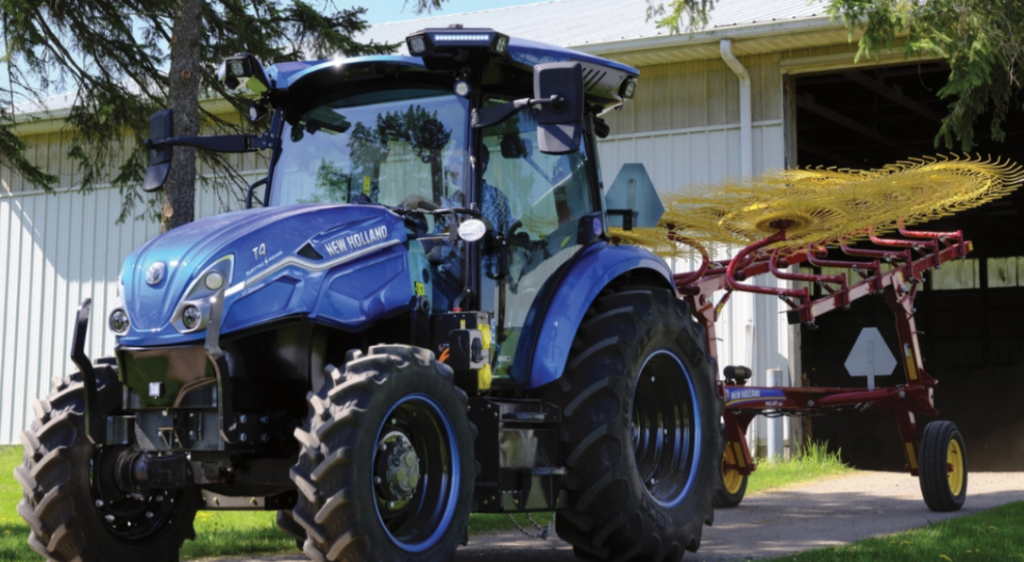
Electric tractors and other field-based farming vehicles are starting to become widely available. Right now, smaller-sized tractors are usually available, but electric versions of large farm machinery are in development.
Harnessing the electrical power, these tractors often come with other benefits, including full autonomy, data collection, and more.
For example, the Amos A3 is a fully autonomous electric tractor capable of completing tasks completely independently of any human interaction. It features field mapping and obstacle avoidance so it can move freely and easily around the farm.
In other examples, the Holland T4 is the world’s first autonomous utility tractor that provides 65 PTO horsepower, and the Monarch MKV can mow, till, weed, and push feed 100% autonomously.
John Deere is also entering the electrified tractor market, with a range of smaller tractors due to become commercially available by 2026.
As we are seeing with combustion cars and vans, electrification will gradually take over the market and become the go-to affordable and sustainable option for farmers and agricultural businesses.
Why Do We Need Electric Farm Vehicles?

Electric farm vehicles address a wide range of issues experienced in all corners of the USA, not just Colorado.
The cost of diesel is rising. Although it has dropped since its peak in 2022, the price still remains at least 60% higher than what it was in 2021. This cost, piled on top of other rapidly rising operational costs, is making it harder and harder for farmers to sustain a living.
With electric farm vehicles, there is no need to purchase diesel, and the cost of electricity is much cheaper than fossil fuels. Therefore, it costs a lot less to run an electric vehicle than a diesel-powered one.
Then there’s climate change. We can’t deny the effects the hotter climate is starting to have on the farming industry. Reducing our reliance on fossil fuels and becoming carbon neutral is the only way we’re going to successfully climb out of this situation.
Electric vehicles that are powered by sustainably generated electricity do their part in contributing towards a greener future.
Finally, amidst chronic labor shortages, electric vehicles, drones, and robots can perform farming tasks efficiently and often remotely. This reduces labor requirements and raises productivity since machines can work 24/7 and in most weather conditions.
What Are the Benefits of Using Electric Farm Vehicles
There are numerous benefits of using electric farm vehicles. Okay, so they may cost more upfront than a standard farm vehicle, but those advantages more than outweigh this negative, so let’s see what they are.
Cheaper to Run

Electricity is cheaper than gas. Yale Climate Connections has completed some interesting research that shows the average cost of running an electric vehicle is $1.41 in electricity per “gallon,” whereas a gallon of actual gasoline averages around $4.67 – this is a 70% discount compared with gasoline.
In Colorado, the analysis revealed that the average price of a gallon of gasoline was $4.37, but the electric gallon equivalent only cost $1.39. That’s a saving of $2.98 per gallon!
Let’s take extreme ends of the scale. Some farm machinery only holds five gallons, while the biggest vehicles can hold 150 gallons. According to Colorado’s figures, that’s a saving of $14.90 up to $447 per tank of fuel.
Now, imagine you’re getting through a tank of fuel every day of the year. Those savings can equate to $5,438 – $163,155. That’s definitely not insignificant!
Reduced Maintenance
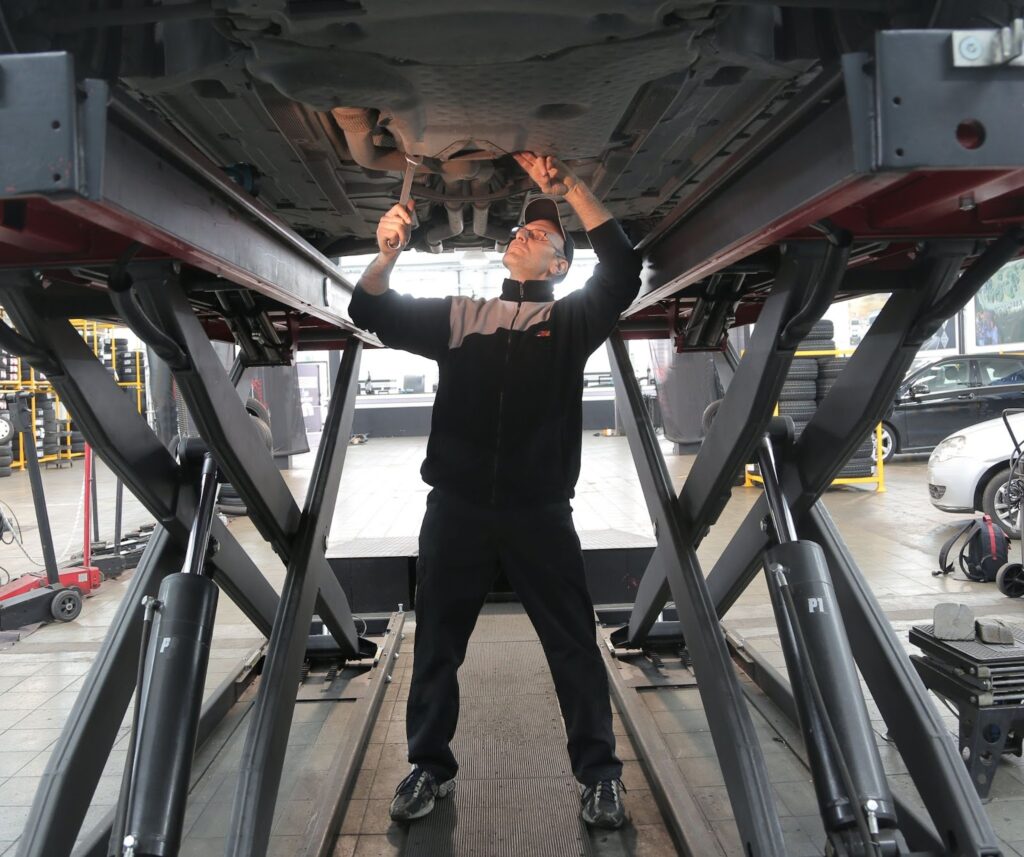
Combustion engines require a lot of attention. There are plenty of moving parts, fluid levels, and other components to take care of, and plenty of opportunity for something to go wrong.
Farm vehicle repairs are frequent, and the cost of them is rising. According to the Wisconsin State Farmer website, $5,000 used to be considered a large repair bill. Nowadays, that’s considered affordable as repairs now frequently cost $10,000 to $15,000.
Furthermore, research published on ResearchGate has uncovered that farm machinery and vehicle maintenance and repair costs can account for up to 30% of a farm’s production costs!
Don’t forget, it’s not just the vehicle repair that costs money. There’s also the loss of revenue to consider while the vehicle is out of action.
Since electric vehicles rely on batteries for power, there are far fewer moving parts, fewer components, and less potential for breakdowns to occur.
Electric vehicle batteries have excellent longevity ranging from 15 – 20 years, and when the time does come to replace them, you’re looking at a maximum of $20,000.
Carbon Neutral

The push for carbon neutrality is getting stronger and businesses are now required to step up their game and move towards more sustainable business practices.
Moving to the use of electric vehicles can accelerate that push and help your business become green, particularly if the electricity used to power the vehicles is from carbon-neutral sources.
Besides being better for the planet and our future (as if that wasn’t enough!), becoming a sustainable business is better for your profit margins too.
Consumers are actively looking for more sustainable products, and they are willing to pay more for them too.
If you can proudly state on your packaging that your farm is sustainable, it will make your brand stand out head and shoulders above the rest.
Quiet

Sitting in a chugging tractor all day is hardly relaxing, and those who work on or around gas-powered farm vehicles are likely affected by the noise they produce. The din created by farm machinery actively contributes toward hearing loss.
Electric farm vehicles offer a much quieter and more peaceful alternative. If you’re unconvinced, Check out Formula E. This is the electric version of Formula One, and thanks to the greatly reduced noise levels, it can take place within city centers without causing a disturbance.
Colorado Electric Vehicle Incentives
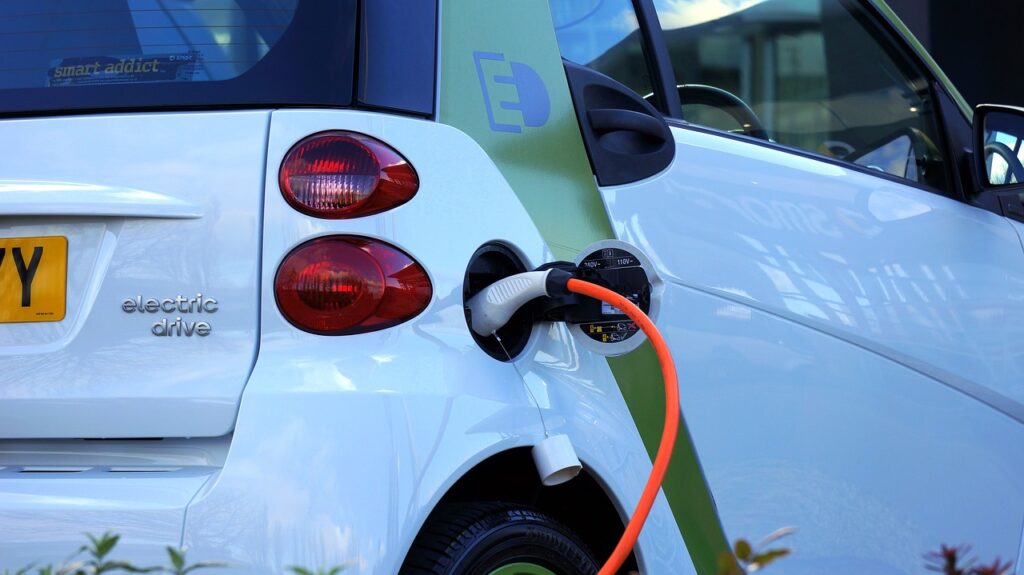
You may be wondering what the take-up of electric vehicles has been like in Colorado.
In total, 1.11% of Colorado’s registered vehicles are electric. As of 2021, the state had almost 1.5 million registered vehicles, which means that around 16,600 of them are electric.
California is the reigning champion of electric vehicles. Currently, 2.50% or 903,000 of its over 14.2 million vehicles are electric.
Colorado is pro-electric vehicles and has a tax credit in place to convince you to make the switch. The government is pushing for over 1 million of its registered vehicles to be electric by 2030.
Unfortunately, the incentives don’t stretch to farm machinery or tractors, but if you’re planning to purchase a 4×4 or a truck, then it can qualify for an “Innovative Motor Vehicle” or an “Innovative Truck” tax credit.
The Innovative Motor Vehicle tax credit is for qualifying purchases or leases:
| Tax year | Purchase | Lease |
| 2021 | $2,500 | $1,500 |
| 2023 (qualifying motor vehicles purchased or leased prior to July 1) | $2,500 | $1,500 |
| 2023 (qualifying motor vehicles purchased or leased on or after July 1) | $5,000 | $5,000 |
| 2024 | $5,000 | $5,000 |
| 2025 | $3,500 | $3,500 |
- The qualifying vehicle must have four wheels, a max speed of at least 55 mph, and weigh 8,500 lbs or less.
- It must be powered by an electric motor, which must be rechargeable via an external power source.
- Battery capacity must be at least 4 kWh and new at the time of purchase or lease.
- The vehicle must be titled and registered in Colorado.
- Leased vehicles must have a lease term of at least two years.
The Innovative Truck tax credit is for qualifying purchases and leases. The values below are for purchases. Check the full document for lease values:
| Tax year | Light-Duty Passenger Motor Vehicles (greater than 8,500 lbs. GVWR) | Light Duty Electric Trucks (8,501 – 10,000 lbs. GVWR) | Medium Duty Electric Trucks (10,001 – 26,000 lbs. GVWR) | Heavy Duty Trucks (greater than 26,000 lbs. GVWR) |
| 2021 | $2,500 | $3,500 | $5,000 | $10,000 |
| 2022 | $2,500 | $3,500 | $5,000 | $10,000 |
| 2023 | $2,000 | $2,800 | $4,000 | $8,000 |
| 2024 | $5,000 | $5,000 | $12,000 | $12,000 |
| 2025 | $3,500 | $3,500 | $12,000 | $12,000 |
| 2026 | TBD | TBD | $4,000 | $8,000 |
| 2027 | TBD | TBD | $4,000 | $8,000 |
| 2028 | TBD | TBD | $4,000 | $8,000 |
The qualifying criteria are the same as the Innovative Motor Vehicle’s, with a couple of differences:
- The gross vehicle weight rating (GVWR) must be more than 8,500 lbs;
- The vehicle must be titled and registered in Colorado OR under the International Registration Plan (IRP) and base plated in Colorado.
Going by the figures outlined in the tables, the time to act is now! 2024 is the year that gives you the highest tax credit amounts, so if you are considering going electric, do it this year to get the most benefit.
Other Colorado Vehicle Tax Credits

The tax advantages don’t stop at simply purchasing an electric vehicle. If you meet the qualifying criteria, there are numerous other benefits you can enjoy.
- Innovative Motor Vehicle: Bonus credits are also available for this scheme.
- An additional $2,500 is given for qualifying vehicles that have a manufacturer’s suggested retail price (MSRP) under $35,000
- Vehicle Exchange Colorado (VXH): This program gives you a tax credit when you exchange your old gas or diesel-powered vehicle for an electric vehicle:
- New electric vehicle: $6,000
- Used electric vehicle: $4,000
- Xcel rebate: Customers of Xcel can get a rebate when they buy or lease an electric vehicle:
- $3,000 rebate for a used electric vehicle
- $5,000 rebate for a new electric vehicle
Important! The Xcel rebate cannot be combined with the Colorado Innovative Motor or Truck tax credits – you have to choose one or the other. It can, however, be taken alongside the vehicle exchange tax credit.
Our advice is to look at both the Xcel rebate and the Innovative tax credits and take whichever one is greater.
Federal Electric Vehicle Tax Credits
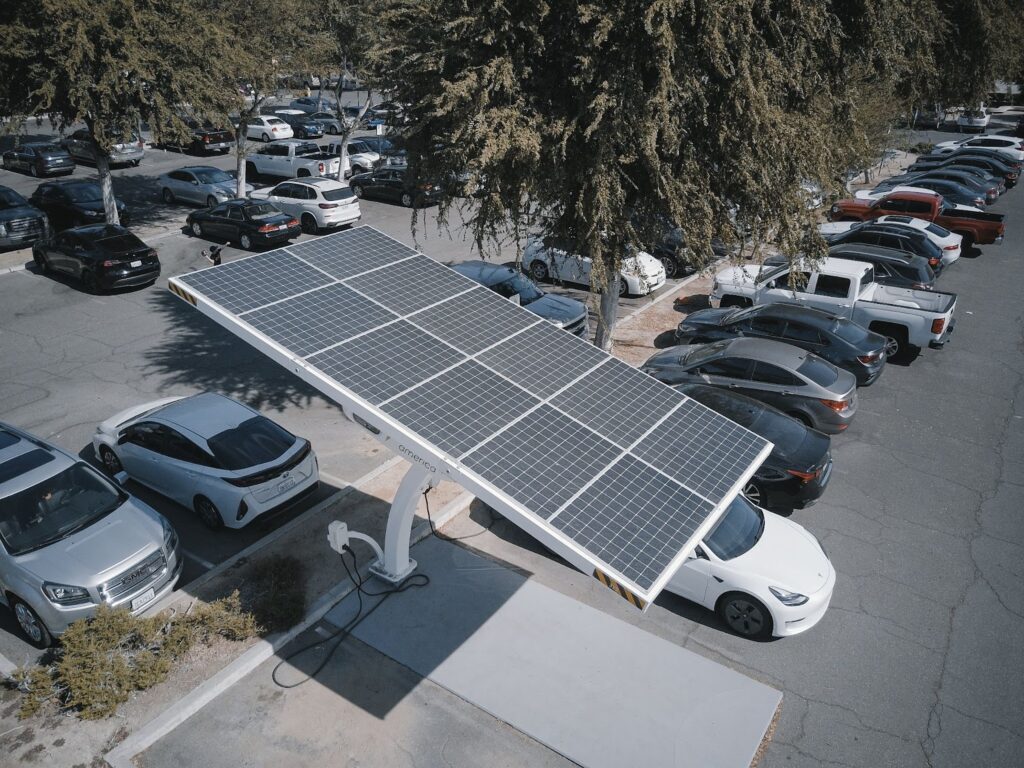
The benefits don’t end there, either. There is a federal tax credit in place, too.
This is for electric vehicles purchased in 2023 onward up until 2032. It’s for plug-in electric vehicles or fuel-cell electric vehicles:
Vehicles placed in service from January 1 to April 17, 2023, get:
- $2,500
- An additional $417 for a vehicle with at least 7 kWh of battery capacity
- An additional $417 per kWh of battery capacity beyond 5 kWh
- Max $7,500 total
Vehicles placed in service from April 18, 2023, get:
- $3,750 if the vehicle meets the critical minerals requirement only
- $3,750 if the vehicle meets the battery components requirement only
- $7,500 if the vehicle meets both
The credit can be applied to purchases of vans, sport utility vehicles, and pickup trucks, but the weight limit cannot exceed 14,000 lbs.
Head here to read more about the qualifying criteria.
Electric Farm Vehicles and Solar Energy: The Ultimate Solution
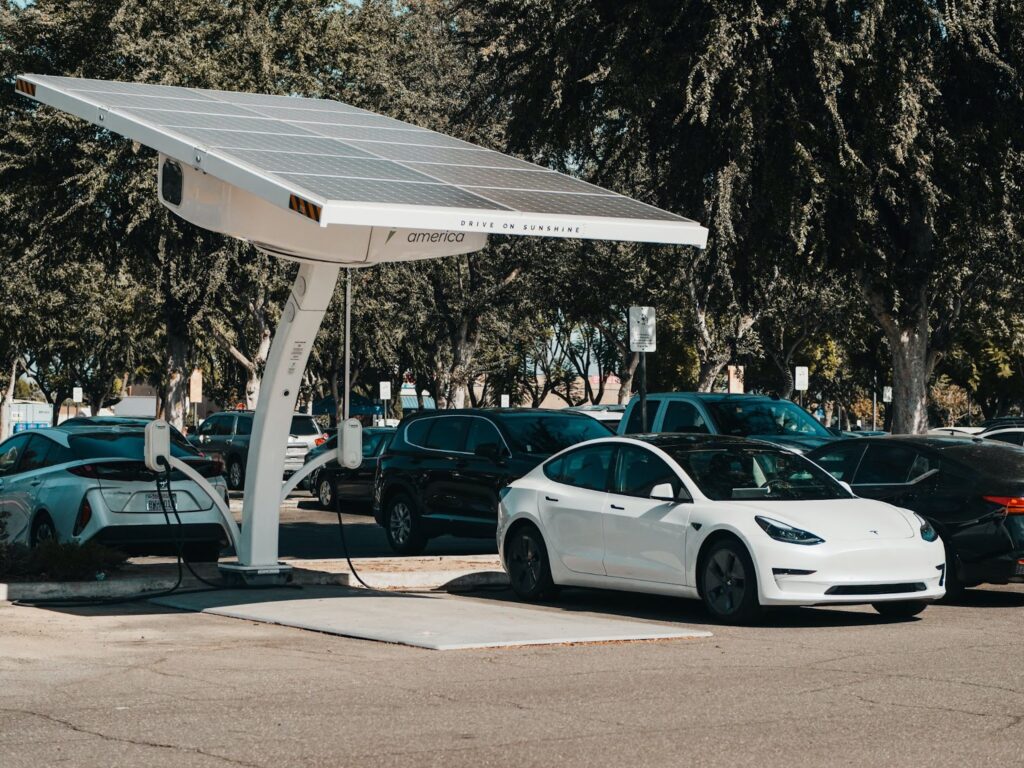
Despite electricity being much cheaper than diesel or gasoline, it’s still pretty expensive. And the cost of electricity is only set to continue climbing.
One way in which farms can really hammer down their operational costs is if they transition not only to electric vehicles but to solar power too.
An adequately sized solar installation can reduce energy bills by as much as 96%. For example, if you pay $50,000 a year for your electricity, this can go down to a mere $2,000.
These savings effectively mean you could power your electric farm vehicles for free!
Moreover, you will be elevating your farm’s sustainability (even better for your brand!), and you could even achieve total carbon neutrality.
The key concern most farmers have about solar energy is the upfront costs, especially if a fairly large installation is required.
However, with the available REAP grant covering up to 50% of the cost of the installation, the 30% ITC tax credit, and other Colorado-specific tax credits available, the cost of having solar installed is greatly reduced.
In fact, it’s perfectly feasible to gain over 100% return on investment within the first year of your solar system’s operation. This is no exaggeration – we’ve run the numbers to check!
With the money you save from going solar, you can also afford to invest in electric vehicle technology and really take your farm to the next level at a fraction of the cost!
Oh, and since you live in Colorado, you can be assured that your solar panels will be working hard most days of the year. As one of the sunniest states, Colorado enjoys over 300 day’s worth of sunshine annually.
This allows solar systems to operate at their maximum efficiency throughout the day and generate lots of electricity for you to use.
Choose 8760 Solar to Power Your Farm

Whether you choose to invest in electric farm vehicles or not, solar energy can still benefit the rest of your operations. Imagine how much less it would cost to run your business if your energy bills were reduced by 96%.
To learn more about how solar energy can benefit your farm, we welcome you to get in touch with the team at 8760 Solar. We specialize in providing solar energy solutions to Colorado’s rural businesses.
We can quickly run a full analysis on your farm to work out the best type of solar system for your needs and provide you with an accurate quote. If you decide to go ahead, we’ll help you apply for and access all the available incentives.
Kick off the process by texting “READY” to 719 470-0254 or contacting us via email at sales@8760solar.com. A member of our team will be in touch right away to discuss this further.
We’re looking forward to introducing you to a solar future!
Frequently Asked Questions
How Do Electric Cars Affect Agriculture?
Electric cars positively affect agriculture. Charging an electric vehicle is much cheaper than refueling a gas-powered one, so farmers can drastically reduce their operational costs and resources by using electricity to power farm vehicles. These savings can be increased further if solar power is utilized for electric vehicle charging.
What Are the Uses of Electric Motors in Agriculture?
Electric motors can be used to power farm vehicles such as tractors. Advanced models can be driverless and provide automated activity management. Electric motors can also be used to power drones for crop spraying or field analysis as well as robots used for fruit and vegetable picking.
What Are the Benefits of Electric Tractors?
The benefits of electric tractors are that they do not release any harmful emissions when operated, they are extremely quiet to run, and they are cheaper to power since electricity costs less than diesel or gas. Electric vehicles also require less maintenance and repairs compared with standard vehicles.
Is John Deere Developing an Electric Tractor?
Yes, John Deere is developing electric tractors along with a range of other agricultural and construction vehicles. Currently in the concept stages, John Deere expects electric compact utility tractors to be commercially available by 2026.
Are Electric Tractors More Expensive?
Electric tractors are more expensive to purchase than gas or diesel-powered tractors. However, the running costs and maintenance are much cheaper. So, while an electric tractor may cost more upfront, it will end up costing a lot less in the long term when compared with a standard tractor.
